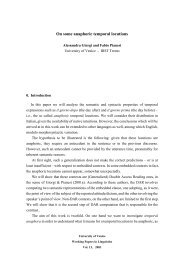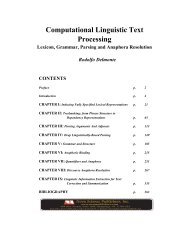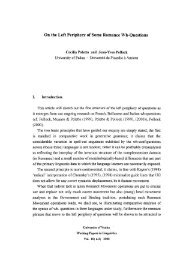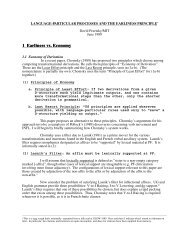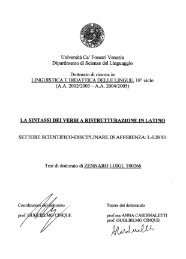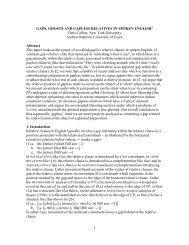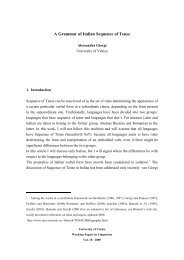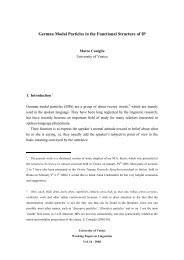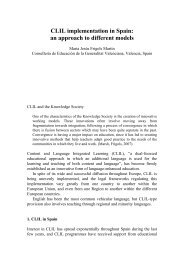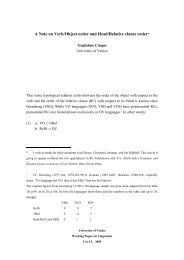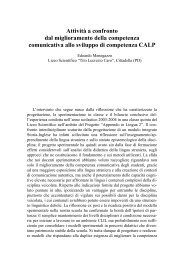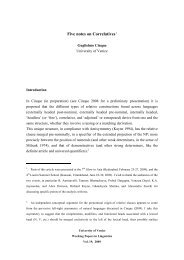Untitled - Lear
Untitled - Lear
Untitled - Lear
You also want an ePaper? Increase the reach of your titles
YUMPU automatically turns print PDFs into web optimized ePapers that Google loves.
(41) *Maria ha scelto ma anche un cappello.<br />
Maria has chosen ma also a hat<br />
Focus in IP: the Particle ma in Florentine<br />
Finally, É. Kiss argues that Identificational Focus takes scope, as it is shown by<br />
the fact that exhaustive identification interacts with other scope-taking elements, like<br />
univesal quantifiers. Take a sentence like (42):<br />
(42) minden fiú [Marival]focus akart táncolni.<br />
every boy Mari-with wanted to-dance<br />
‘For every boy, it was Mari that he wanted to dance with.’<br />
In (42) the universal quantifier takes scope over exhaustive identification, and<br />
the sentence means that every boy wanted to dance with Mari and not with any other<br />
girl. If we compare two sentences with a universal quantifier in topic position 5 , the<br />
first with a standard Informational Focus, the second with a ma Focus, they diverge<br />
precisely in this respect: only the sentence with the ma Focus means that for every<br />
boy it was only one specific girl that he liked. The other sentence does not exclude<br />
that some boys liked also other girls:<br />
(43) a. a ogni ragazzo piaceva [Maria]focus.<br />
to every boy liked Maria<br />
‘Every boy liked Maria.’<br />
b. a ogni ragazzo piaceva ma [Maria]focus.<br />
to every boy liked ma Maria.<br />
‘For every boy, it was Maria that he liked.’<br />
On the basis of these data I propose that maP is associated with an [+Exhaustive<br />
Identification] feature. At this point it is possible a further refinement of the first<br />
hypothesis about the ma Focus.<br />
A ma Focus structure is formed by two syntactic processes: the first one is the<br />
syntactic movement of a constituent to the specifier of FocP in the IP, the second<br />
one is the insertion of the particle ma, bearing the [+Exhaustive Identification]<br />
feature, in the low IP area. The syntactic domain of the particle is the focused<br />
constituent in [Spec, Foc]. Under this configuration, the element in [Spec, Foc]<br />
receives the exhaustive identification interpretation, and VP undergoes remnant<br />
movement to a higher position.<br />
5 See Cardinaletti (2004) for some discussion about the precise position of “dative subjects”<br />
of verbs like piacere ‘to like’.<br />
35



